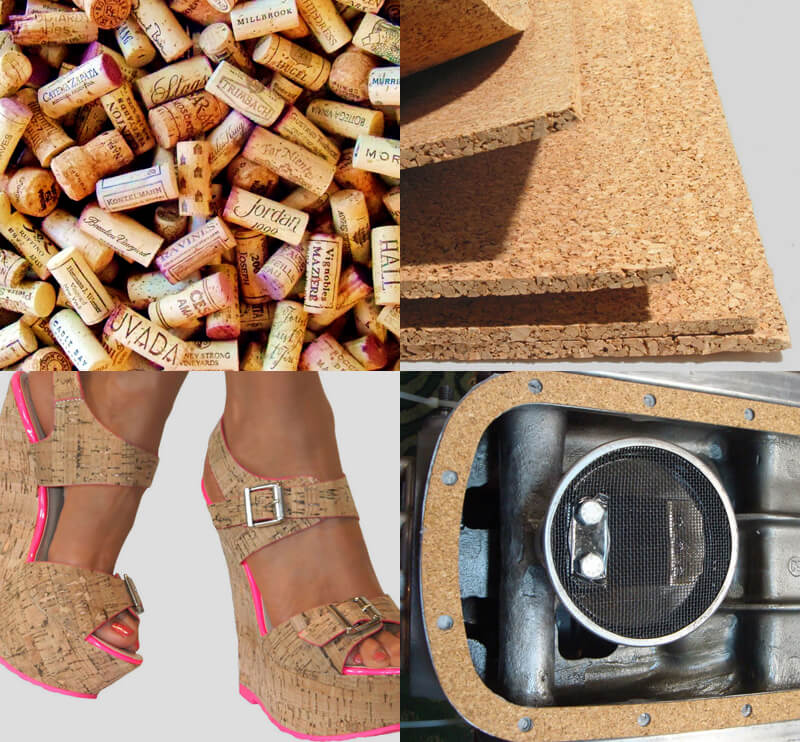Products
Product index:
all products provided by
CIF members
From Cricket balls to bottle stoppers and from submarines to heat shields for protecting space re-entry vehicles, few natural and renewable materials touch our lives as frequently as cork.
Many of its uses may not be visible but the benefits of this unique material are wide-ranging making our lives safer, more enjoyable and more comfortable.
Below are some examples of the many uses for cork, followed by a complete index of all products provided by Cork Industry Federation members.
The many uses for cork
Closures
Cork stoppers have undeniable advantages over plastic, aluminium and other man-made materials. The natural compressibility of cork makes it easy to use on modern high-speed bottling lines and this natural elasticity is retained over time unlike with many other materials. At the same time cork is chemically inert and impermeable to liquids and gases which is why it has proved so successful for making stoppers since Homeric times.
Decorative
Cork tiles for floors and walls provide warm, comfortable and durable alternatives to traditional coverings. Cork is highly abrasion resistant, protects against humidity and dampens sound, making it ideal for both residential and commercial uses. Cork is also frequently used as an underlay for hardwood, ceramic and marble floors.
Leisure & Giftware
The attractive appearance, pleasant feel and special properties of cork make it a suitable material for producing many household gifts and novelties. Trays, coasters and bulletin boards are some practical examples. Cork is also often used in fashion items such as light, comfortable footwear and as an alternative to leather for accessories like handbags, brief cases, wallets and key holders.
Entertainment
Cork plays a large part in the sporting goods industry for fishing and boating equipment, Cricket balls, bowling balls, dart boards and numerous other applications where lightness, buoyancy, slip resistance and compressibility are required. For musical instruments cork is frequently used for tenons and keys in brass and woodwind and even the conductor’s baton often features a light slip-resistant cork grip.
Industrial
The special physical and mechanical properties of cork allowing it to compress and immediately regain its original size under all weather and temperature conditions make it particularly useful in expansion joints and in concrete structures such as dams, tunnels, airport runways and highways.
Transport
Gaskets used in the automotive industry combine the unique compressibility, elasticity and heat resistance of cork with the mechanical resistance and size stability of rubber. The combination of these properties creates excellent gaskets for engines, transmissions and even electrical transformers.
Insulation
The cellular structure of cork, even in granular, roll or block form, consists of millions of ‘air cushions’ or cells that makes it ideal for many building industry applications. The ability of cork to act simultaneously as a thermal and sound barrier as well as a vibration dampener is very useful. At the same time, cork does not corrode, is extremely fire resistant and can bear heavy loads.



















